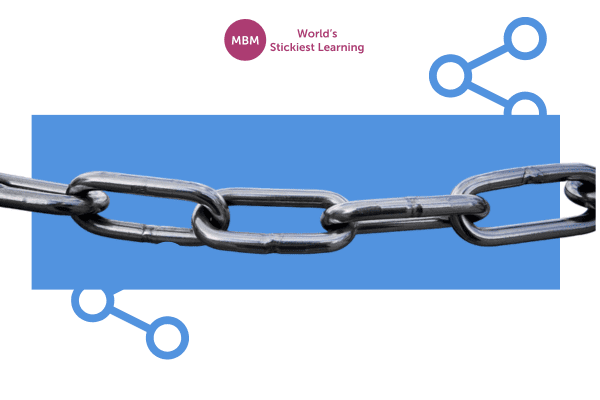Any Company That Wants to Achieve Success Needs Effective Line Managers in Their Structure
So what is a line manager? We’ll get into the details shortly. For now, understand that line managers run the daily operations of the department or area they are in charge of. They develop and grow the team they manage. And they get the tasks done for the overall success of the company’s goals.
Here we will look at:
- What is a line manager in terms of definition and meaning.
- 7 key characteristics line managers have or need.
- Where they fit into the structure of the company.
- My personal line manager experience.
- Identify possible pitfalls when we are faced with a bad line manager.
Definition of What is a Line Manager

Cambridge Dictionary gives the following definition of a line manager.
The person who is directly responsible for managing the work of someone else in the company or business, and who is one level above that person.”
Collins English Dictionary says the following.
Your line manager is the person at work who is in charge of your department, group, or project.”
Oxford Languages gives the following descriptions.
A person with direct managerial responsibility for a particular employee.”
Or
A manager involved in running the main business activities of a company.”
Line managers within any company have multiple roles and responsibilities. The above definitions explain some of those key focus areas. They are responsible for the department or group. Also, they are in charge of a given project or task. You report to them directly, without them being senior management. And, they look after the principal activities of the company. That means they can be supervisors, assistant managers, or managers within the structure of the company. But what is a line manager in terms of their key characteristics? Let’s have a look.
7 Essential Characteristics and Skills

While revisiting the topic of line managers for this article, “Managing People: A Practical Guide for Line Managers” by Michael Armstrong (1998) really resonated with me. In his book, Armstrong covers a variety of different areas line managers are and need to be responsible for, truly showing the scope these managers cover within any organisation.
The extent to which the line manager is involved in the running of the team, from hiring to team building to performance and development management, shows the vast array of skills and abilities expected in these roles. Even over 20+ years later, his book gives great insight into the focus areas and skills of today’s line managers.
For line managers to be effective, they need to have certain skills and characteristics. These include the below.
#1: Interpersonal Skills
All line managers need to be able to interact well with others. They need to:
- Be able to build and maintain relationships within their own team as well as with other teams or departments.
- Relate to senior management.
- Connects their team to all other areas.
For their team, these managers work hard to build relationships with the different members of the team. They know and understand the strengths and areas of improvement for each member. It’s important that they know each person’s capabilities and what they can contribute to the team. This will help in achieving results and accomplishing goals.
With other teams, our line managers are how we pass on information. They are responsible for making sure that relations between their own team and others are effective. If you have line managers from different departments at loggerheads, their teams and their goals will suffer. Therefore, line managers need to be able to negotiate, compromise and problem-solve with others. This helps get better results. Once they start wasting time and energy on the blame game, everyone, including customers, will suffer.
#2: Effective Communication
We know that communication is a key aspect of achieving results. We also know that communication can break down very easily. This is where the line manager steps in. They are responsible for ensuring that information from senior management reaches their team in the right way and at the right time. It is also true the other way around. Line managers must be able to communicate upwards to senior management on behalf of their team.
So, within the team, the line manager oversees the flow of communication within the group. This can be when they:
- Conduct meetings and briefings.
- Provide on-the-job training and development sessions.
- Manage performance appraisals and disciplinary meetings.
Our line managers need to have exceptional communication skills to keep everything on track for their team.

Now, with senior management, line managers need to have the confidence to state their opinions during meetings. They need to have an assertive approach to share any concerns or issues that their team may be experiencing. This needs to be done in such a way that senior management is ready to listen to it. Therefore, they need to avoid being aggressive in their approach. Also, they cannot afford to be passive when a real issue needs to be addressed.
It is important that line managers are able to find the right communication style to suit the situation they face. This will ensure that they are properly considering their audience as well as the message that needs to be shared.
#3: Competency
Line managers in charge of a team need to know what they are doing. Many line managers rise up through the ranks within a company. Therefore, they bring with them the skills, knowledge, and experience required for their team to be successful. This gives a greater level of confidence in the team of their manager’s capabilities. We are hesitant to follow a leader who doesn’t have the skills and knowledge to lead the team effectively.
Imagine you enter your workplace and are introduced to a new manager in charge of your department. This person has been transferred from another department within the team. They come from an area where the skills and knowledge required are very different. For example, they were in finance and have now been moved to customer operations.
You know they don’t have any operational or team management experience. You are not even sure why exactly this person has been given this position. You’re now concerned about what they can bring to the role and team. This can cause problems within the team in terms of efficiency and ability to do the job effectively. In this case, the line manager will probably have to learn everything about the job from their juniors. This is not the way it should happen.
To avoid this from happening, we need to fill line management positions carefully. They will need these candidates to be the right fit for the role. The last thing we want is to create division in the team. We should look at developing people from within the team for future line management roles. When hiring from outside the company, we need to look at experience, skills, and knowledge to fill these vacancies effectively.
#4: Organisational Skills
Our line managers need to be able to organise themselves and their team well. They need to be effective coordinators in order to get all areas of their roles covered. This can be anything from payroll to weekly/monthly rosters to managing team meetings. It can also be about having a proper agenda for team meetings. They also need to be able to organise task distribution effectively.
Line managers also need to be able to coordinate well with other departments. Very often, they are the link between their team and the others in the company. In that way, they need to be able to balance their priorities with those of other teams.

>> Advanced GROW Coaching Cards <<
>> Access on Amazon <<
#5: Time Management
Good line managers need to be able to manage their own time and that of their team effectively. They start losing their impact when tasks fall behind schedule or people are overloaded. This is where key elements of time management are important for line managers to practice.
For example, they need to be able to delegate tasks to the right people to get the best results. We saw earlier that they need to know their team members well in terms of strengths. This will make delegating tasks more effective. When line managers micromanage, they fail to develop others in the team who have the ability to complete tasks without constant supervision. This also leads to a sense of there being a lack of trust between the manager and the team members.
Effective line managers will also be able to manage timeframes. They will have a plan for how the tasks will be completed and the milestones that will need to be reached along the way. Those who can communicate well with others, delegate well, and monitor progress will meet deadlines more often.
Another aspect of time management that line managers must know is how to prioritise well. We all like to tackle easy tasks first. It is the role of the line manager to ensure that all tasks are given the proper time and attention required to complete them. By assigning these tasks in an efficient manner, line managers can be sure of achieving the required end result.
#6: Decision Making
It’s important that line managers are strong decision-makers. They need to be able to make decisions about a wide variety of subjects. Effective managers can make tough decisions while still maintaining team relationships.
It happens that line managers will need to make quick decisions relating to their team, the operations, and the business. They need to have the authority to make these decisions. If this authority is missing, then decisions need to be passed up the management ladder. This will lead to delays and even mistakes. Therefore, line managers need to have this characteristic. They also need to be able to have the strength to stand by their decisions.
Line managers need to understand the opinions and ideas of others. They need to be able to see other points of view. This is where empathy comes into play. This is most effective when they understand what others are feeling during different experiences. Line managers have this ability based on their own experiences and skill development. They are able to step back and see the situation from multiple viewpoints.
By having this characteristic, the line manager continues to connect better with their team members. They can use this to build relationships. Also, they create emotional connections by applying this skill. It helps to bring the team together. It also helps the staff feel more comfortable about opening up with their managers.
#7: Focus on Development
All line managers have had the opportunity to learn and grow to achieve their current managerial position. Now, it is their responsibility to make that happen for others. They have the perfect chance to develop and grow the members of their team. They are in a unique position of knowing their team members best in terms of capabilities and potential. These line managers know their strengths and areas of improvement from continuous interactions with them.
With this in mind, they need to make this happen. Effective line managers don’t feel threatened by the development of others. They embrace it. They are motivated to see others advance and succeed. Therefore, they know and understand the importance of investing time and effort in development plans. And, they thrive on having opportunities to develop themselves.
What is a Line Manager’s Place in the Structure?

Line Management Vs. Senior Management
Senior management is in roles of strategic responsibility. They need to plan the long-term goals and direction of the company. For them to have time to do this, they need to have competent managers in positions of authority for everyday operations.
Therefore, line managers are involved in the day-to-day running of the department. They may contribute ideas and suggestions towards long-term goals. However, it will be senior management who makes those final decisions. The line manager will make the decisions for what happens with the team and the tasks at hand. Their senior manager will deliver a target, the line manager will find ways to make it happen. They will allocate resources as well as personnel depending on their daily or weekly needs.
Line Management Vs. Line Staff
Line managers are in place to oversee and supervise the junior team members. They will guide them, develop them, and instruct them as needed. They will also need to correct mistakes and fix problems along the way. The junior staff has the chance to learn from their line managers. Hopefully, they learn positive qualities and practices.
Line staff completes the everyday tasks of the companies. The line managers are there to make that happen in the right way. All companies, regardless of industry, need junior staff to make things happen. No company can survive without them. The line manager roles ensure quality, efficiency, and consistency at these junior levels. Through their supervision and guidance, they achieve the overall results required by the company.
We must remember that line managers remain the link between senior management and line staff. Without these line management roles, different negative implications will occur. Senior management will be overwhelmed with the day-to-day dealings of the company. Then, the strategic planning of the company will be missing. Also, without the mid-level, line staff will have fewer career opportunities to be developed for. This would leave many more at the junior levels for longer as the senior levels will be replaced less frequently.
Line Manager Responsibilities
It is important to note that line managers have a wide range of responsibilities in their roles. These responsibilities support the duties of both the junior members of the team reporting to them and the leaders they in turn report to. These responsibilities include, but are not limited to the following:
- Manage the daily operations and team
- Train new and existing team members on departmental-related topics
- Organise the task distribution for the team
- Handle team issues and complaints
- Guide team members through disciplinary action
- Conduct performance appraisals
- Manage the weekly schedule/annual leave requests
- Interview, select and onboard new joiners
- Create development plans for team members
- Lead team meetings and briefings
- Cascade information from management to the team
- Create and maintain a motivating and inclusive work environment
- Manage conflict and disputes within the team
- Create and manage the departmental budget
- Support and encourage the team through challenging situations
- Maintain quality control in terms of standards and consistency
My Experience in Line Management
I have experienced line management in a variety of hotels and resorts I have had the pleasure of working for over the years. I have managed a range of teams of different sizes, nationalities and levels of experience. This included a large central London, hotel, international brands in Dubai, and one of the largest beach resorts in Seychelles. So, I can honestly say that each role had great learning opportunities that created the chance to put key line management competencies and skills into practice, as well as develop new skills along the way.
My first line management role came at the age of 24 in a 400-room hotel in central London. I genuinely believed that my Front Office Manager may have been joking by suggesting I take on the Assistant Night Manager job of our hotel at that young age. However, that’s exactly what I did! Working nights in central London, especially at the weekends is a challenging, yet rewarding opportunity.
What Did I Learn
What I learned from that first experience stayed with me for a long time. And until now, many of those skills and experiences have guided me. It helped me:
- Build confidence – the buck stopped with me and decisions couldn’t be passed up the ladder when I was the leader of the night shift team.
- Improve my problem-solving skills – creativity and know-how helped with that.
- Delegate better – the team needed to pull together to get the job done, especially for last-minute requests.
- Identify the strengths and limitations in others – having a small team during the nights helped me understand who was capable of what.
- Improve my time management skills – otherwise, the night auditor wouldn’t be happy with me for delaying the whole process.
- Deal with customer complaints more effectively – they were depending on me to fix the issues.
- Respect the contributions of others – everyone’s role is important and has value.
In my current role in learning and development, I have the opportunity to pass on these important skills and realisations, and more, to a new generation of leaders through the training courses I offer to our current and future leaders.
What is a Bad Line Manager?

In a 2023 article for Forbes Magazine, “Want Better Employee Engagement? Invest in Your Line Manager?”, David Morel wrote about the importance of investing in line managers to create better engagement. In his article, Morel highlighted how these line managers are the goal-setters and cheerleaders of the team. That got me thinking about what the pitfalls are when the wrong people are in those roles.
Some time or another, we have all had challenges with line managers in our teams. We need to be able to recognise some of the tell-tale signs that our line managers are ineffective. Let’s have a look at some of these practices to watch out for.
Challenges with Line Managers:
#1: Lack of Buy-In
We need the line managers on board in terms of passing information from senior management to line staff. This can be ineffective when we don’t have the buy-in of our line managers. Our managers will pass on their lack of conviction about what we are doing or how we want to do it in their message to the staff. They will communicate in a way that reveals their disinterest or lack of belief in the information being shared.
This will have a negative impact on those receiving the information. Many line staff will follow their manager’s lead. If that buy-in doesn’t exist from their managers, the line staff may not be on board either. This can lead to defiance from the team as a whole.
#2: Opposition to Company Policies, Procedures, or Culture
In addition to the lack of buy-in, we might see open opposition to company policies, procedures, or culture. Here, we would experience vocal rejection of the issue. Or we could witness the manager and their team simply ignoring the company guidelines and doing what they want.
This will create a clear divide between the team and senior management. Obviously, senior management wants things done in a certain way. This is why they have developed the policies or procedures in the first place. However, open resistance to them will not make the right impact. Instead, effective line managers bring their concerns to senior management in the right platform, supporting their case with data and facts.
#3: Inconsistency in Standards and Approach
We all want managers who are consistent in their approach. This can be in terms of quality or safety standards. It can also be about how members of their team are treated. Let’s take for example the line manager in charge of a production line. They follow all of the company standards some days. However, they are lax and ignore the standards on other days. This inconsistency will have a deep impact on the quality of the product. It will also create confusion for the team.
Another example can be about how staff are treated. Let’s imagine that 2 team members make the same mistake but the line manager cautions them differently. This sends a very confusing message to the 2 team members involved as well as the rest of the team. With these inconsistencies, there can be frustration or division caused in the team by the manager.
While we want consistency, we also want to allow for flexibility and adaptability where required. Ineffective line managers are not willing to budge on certain aspects of work. This again can lead to challenges for the team and results. The best line managers know when and how to adapt to different circumstances. They are consistent in their ability to adapt and be flexible.
#4: Showing Favouritism
Another pitfall we can see is when our line managers show favouritism. This shows uneven and unfair attention being given to one or more members of the team. The attention can be either negative or positive. As such, those receiving the negative attention can feel targeted and even bullied. Those receiving positive attention can become arrogant and
Favouritism will always cause a divide within the team. It leads to conflict and resentment within the team. The favourites may not even appreciate the attention they are receiving. However, this will not appease those who feel they are being unfairly ignored. It is hard for favouritism to be removed once it has started.
#5: Lack of Respect for or from the Team
Line managers need to work on creating trust and respect between themselves and their teams. These are essential for the proper team dynamic that is needed to achieve results. However, bad line managers do not care about creating these important elements. They probably only care about themselves. This mentality is self-destructive. The team will not make the effort for managers they don’t respect. Also, they will alienate themselves from managers who don’t show them proper respect for their roles and contributions.

How This May Develop
This lack of respect can show in different ways. The manager may:
- Ignore all ideas or suggestions given by members of the team.
- Openly criticise staff in front of their colleagues.
From the point of view of the staff, we might see:
- They simply defy the manager’s instructions or orders.
- They might make fun of their manager in front of people from other departments.
- You might even see HR receiving formal reports about these managers, even if the complaints turn out to be false.
Either way, we need to have mutual respect on both sides. The line manager needs to take the lead in creating and maintaining this respect. They need to find ways to show and receive the same.
In Summary
So, let’s recap what is a line manager by remembering LINE.

L – Link with Others
The line managers in our team link our team members together. They are also the link between line staff and senior management. Another link line managers create is with other departments. Therefore, build your relationships with others. Also, promote interdepartmental understanding for better collaboration. Additionally, encourage your team to connect and build relationships within and across the team.
I – Interpersonal Connections
Line managers have strong interpersonal skills. They work well with others. These managers care about their team. They communicate well with their older colleagues. And, they collaborate well with other departments. Here, practice different interpersonal skills as a line manager, including empathy, teamwork, and respect. Lead by example for your team to follow your best practices. Also, encourage others in your team to enhance their skills in this area.
N – Necessary in the Structure
Remember, line managers cover many key roles and responsibilities. They allow senior management more time to concentrate on the big picture items. Also, they develop and guide the junior staff.
E – Engage the Team
Effective line managers engage their teams. So, create a great team dynamic using this approach. Also, use these connections to achieve results more effectively.
Updated: April 2024 by Ailish O’Rourke-Henriette




